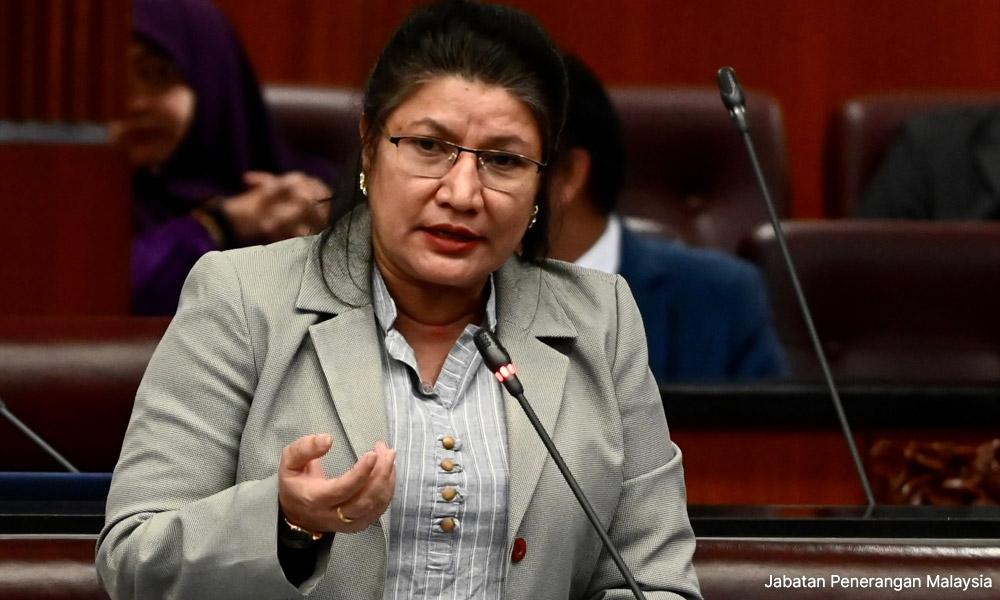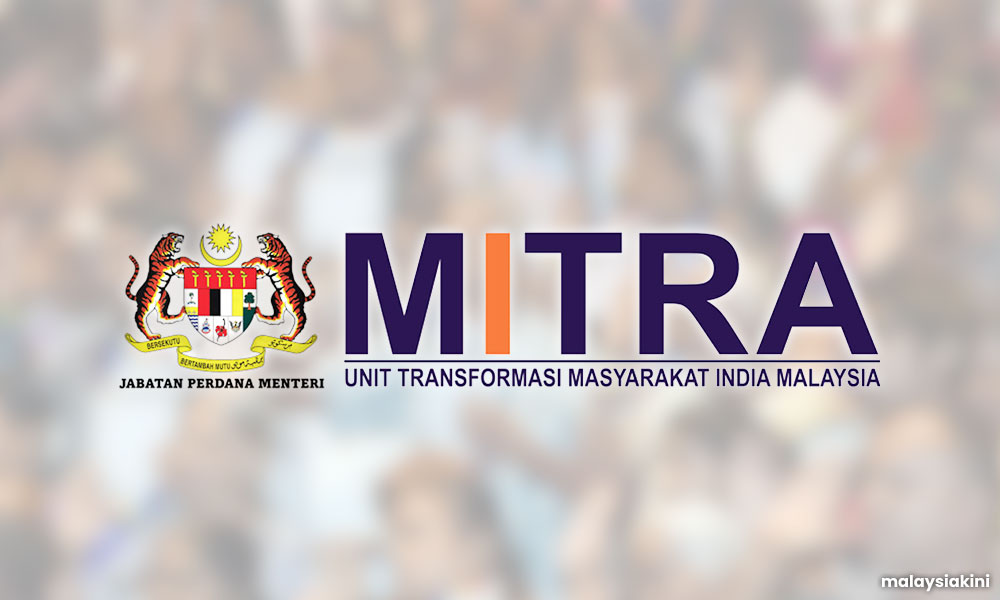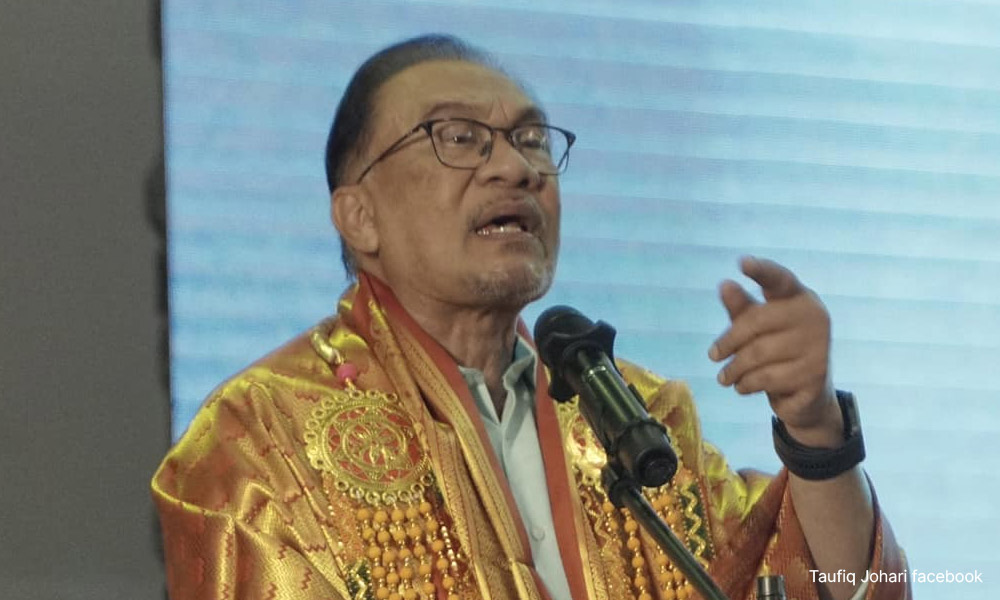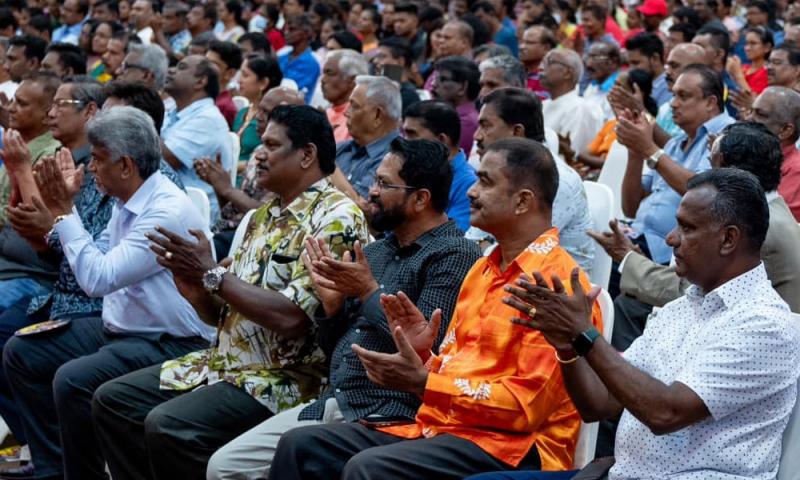LETTER | Plight of Indian community: Between promises and action
LETTER | The Global Human Rights Federation (GHRF) would like to respond to a media report quoting Deputy National Unity Minister K Saraswathy as claiming that the government did not marginalise the Indian community.
In the Bernama report on Jan 20, she said that the government has come up with various initiatives for the Indian community.
“For example, the People’s Income Initiative (IPR) announced by the prime minister to eradicate hardcore poverty through the Food Entrepreneur Initiative (Insan) and Services Operator Initiative (Ikhsan) and so on.
“The problem is the information does not reach the target group,” she was reported as saying.
GHRF would like to mention that it is concerning to see a public official using their position to promote biased views in addressing the issues faced by the Indian Malaysians.
The inclusivity and fair representation of minority groups, particularly the Indian community, have long been a controversial topic.

Take note that Saraswathy herself acknowledged that the information about these initiatives does not reach the targeted group, indicating a failure in reaching out to the marginalised community.
Despite the government’s efforts over the past 13 months, there is currently no empirical data detailing how many of these poorest Indians are aware of these initiatives, let alone benefit from them.
This raises the question of whether these initiatives are indeed reaching the demographic they are designed to serve.
Furthermore, the lack of established service centres raises questions about the effectiveness of aid delivery.
And the deputy minister’s lack of engagement with NGOs for discourse on raising awareness and relief provisions further exacerbates the issue.
On Jan 4, 2023, former human resources minister V Sivakumar and Saraswathy announced the formation of the Indian Affairs Action Committee (IAAC) which will consist of nine Indian MPs.
It was to address critical issues faced by the Indian community involving citizenship, Tamil schools, temple land issues, youth and Indian entrepreneurs’ development, cultural and religious heritage, education and welfare, housing, poverty and employment opportunities.
What is happening with IAAC, Mitra?
Back then, Saraswathy assured that the welfare of the Indian community and other various problems would be focused through IAAC as mentioned under Suara Keadilan web page.
The IAAC began with a vision and an ambitious implementation but there is an unsettling disparity of any actions or progress made over the year.
As such, the Indian community continues to exhibit educational disparities and welfare inadequacies, a clear deviation from IAAC’s initial promise of mitigating such problems at the grassroots level.
The lack of concrete evidence regarding the IAAC’s accomplishments, such as data and statistics, raises concerns about its effectiveness and transparency in achieving its objectives.
Malaysian Indian Transformation Unit (Mitra), was established as a special unit responsible for addressing the socio-economic development of the Indian community in Malaysia.
With Mitra now being under the preview of the Unity Ministry, Saraswathy should provide concrete evidence of Mitra’s accomplishments, such as data and statistics, to substantiate claims and provide accountability.
This is important as concerns have been raised regarding the unit’s effectiveness and transparency in achieving its objectives.

To further enhance the effectiveness and transparency of Mitra, it should be administered under a federal statutory body and monitored by a board, which will be responsible for overseeing Mitra’s operations, monitoring its progress and holding it accountable for achieving its objectives and remaining focused on its core mission, and directly reporting to the prime minister.
This will enable the public and stakeholders to evaluate the unit’s effectiveness and ensure it is fulfilling its intended purpose.
In the aftermath of the unity government’s formation, it has become evident that the minority communities in our country are still getting a raw deal.
Despite promises made during the election campaign, it is disheartening to witness the lack of action and the mere political motivation behind these speeches.
On Nov 2, 2022, Anwar Ibrahim launched an election manifesto titled “Tawaran Harapan” which outlined 10 priorities.
He mentioned the plight of the Orang Asli and Indian community, promising solutions to them.
Among the priorities, he emphasised the increasing number of individuals, particularly among the Orang Asli and Indians, who have no solutions in sight.

Just 12 days later, during the campaign in Tapah, Perak, Anwar made a statement claiming that many Indians were “dirt poor”.
However, to witness the difference between words spoken and actions on the ground is disconcerting.
It also undermines the people’s faith in the democratic process and perpetuates a sense of disillusionment and mistrust towards the government.
Therefore, GHRF calls for greater transparency, accountability and genuine efforts to address the challenges faced by the Indian Malaysians.
Only through inclusive policies and fair representation can the government truly empower and uplift marginalised communities.
It is imperative that the government takes immediate action to bridge the gap between promises and actions, ensuring the well-being and progress of all its citizens.
Writer is the president of Global Human Rights Federation.
The views expressed here are those of the author/contributor and do not necessarily represent the views of Malaysiakini.
RM12.50 / month
- Unlimited access to award-winning journalism
- Comment and share your opinions on all our articles
- Gift interesting stories to your friends
- Tax deductable
